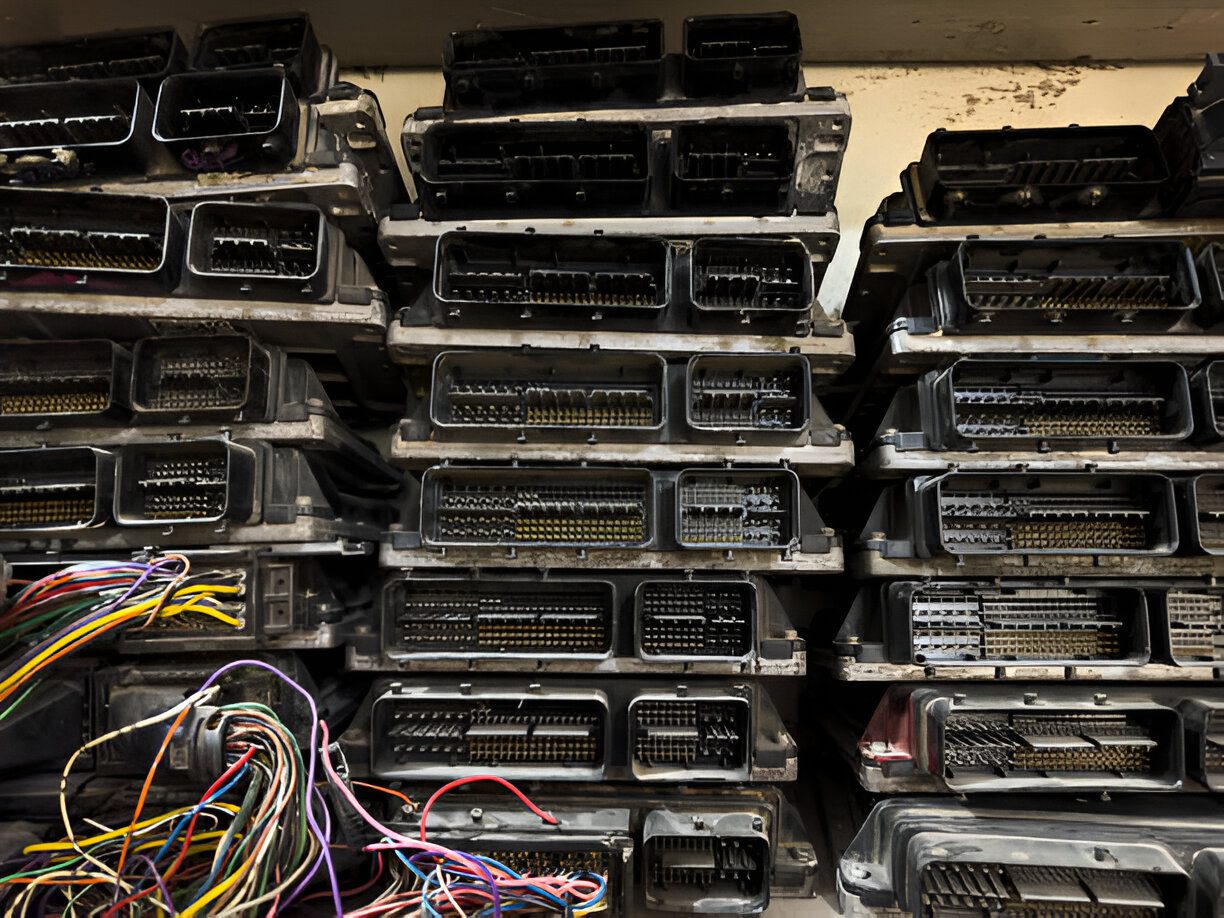
The transmission control unit (TCU) plays a vital role in modern vehicles, especially those with automatic transmissions. It is responsible for managing and controlling the transmission system, ensuring smooth gear shifts and optimal vehicle performance. In the USA, where driving conditions can vary greatly from state to state, the TCU’s role is crucial for both vehicle reliability and efficiency. This blog will provide an overview Transmission control unit in the USA is, its functions, and why it is essential for vehicles in the USA.
What Is a Transmission Control Unit?
Definition of a Transmission Control Unit (TCU)
A transmission control unit (TCU) is an electronic component found in many modern vehicles. It controls the operation of the transmission system, specifically for automatic transmissions. The TCU is part of the vehicle’s onboard computer network and works in conjunction with other control modules to ensure that the transmission operates efficiently.
How Does the Transmission Control Unit Work?
The TCU controls various aspects of the transmission system, including shifting gears, torque conversion, and fluid pressure. It takes input from sensors, such as vehicle speed and engine load, to determine the appropriate gear for the vehicle’s current driving conditions. Based on these inputs, the TCU sends signals to the transmission to either shift gears or adjust settings for smoother operation.
Why Is the Transmission Control Unit Important?
Optimizing Vehicle Performance
The TCU plays a critical role in optimizing the vehicle’s performance. By controlling gear shifts, the TCU ensures the engine operates at its most efficient levels, reducing fuel consumption and improving overall driving experience. In the USA, where long-distance driving and varied terrain are common, a well-functioning TCU is key to ensuring smooth driving on highways, in city traffic, and through challenging driving conditions.
Enhancing Fuel Efficiency
One of the key benefits of the TCU is its ability to enhance fuel efficiency. By managing gear shifts based on real-time conditions, the TCU ensures the engine runs at optimal speeds, reducing fuel consumption. In regions where fuel prices are a concern, such as many parts of the USA, this can translate to significant cost savings for vehicle owners.
Reducing Wear and Tear on the Transmission
Another important role of the TCU is to reduce wear and tear on the transmission system. By ensuring that gears shift smoothly and at the right time, the TCU prevents the transmission from experiencing excessive strain. This can extend the lifespan of the transmission, potentially saving vehicle owners costly repairs or replacements.
Common Problems with Transmission Control Units in the USA
Malfunctioning or Faulty Transmission Control Units
Like any electronic component, TCUs can malfunction. A faulty TCU may cause erratic shifting, rough gear changes, or even failure to shift gears properly. These issues can significantly affect the vehicle’s performance and safety. In some cases, a malfunctioning TCU may lead to the transmission failing entirely, which can be a costly repair.
Causes of TCU Failure
There are several reasons why a TCU might fail, including electrical issues, damaged wiring, or software malfunctions. Environmental factors, such as extreme temperatures, especially in areas of the USA that experience hot or cold weather, can also contribute to TCU failures. Additionally, poor maintenance practices, such as neglecting regular transmission fluid changes, can lead to TCU problems over time.
Symptoms of TCU Failure
If the TCU is malfunctioning, a vehicle owner may notice a range of symptoms. These can include hard or delayed shifting, the check engine light turning on, unusual noises from the transmission, or poor acceleration. If any of these signs appear, it is important to have the vehicle checked by a mechanic to diagnose whether the TCU is at fault.
How to Maintain a Transmission Control Unit in the USA
Regular Transmission Fluid Maintenance
One of the simplest ways to keep the TCU functioning properly is by regularly maintaining the transmission fluid. In automatic transmissions, the TCU relies on proper fluid pressure to shift gears. Dirty or low transmission fluid can impair the TCU’s ability to function correctly. It is recommended that vehicle owners follow the manufacturer’s guidelines for fluid changes and ensure that the transmission system is properly lubricated.
Ensuring Proper Cooling
Overheating can damage the transmission and the TCU. In the USA, particularly in regions with high temperatures, it’s essential to ensure that the vehicle’s cooling system is working efficiently. A malfunctioning radiator or cooling system can lead to high transmission temperatures, which can damage the TCU. Regular inspections of the cooling system can help prevent such issues.
Regular Diagnosing and Software Updates
Modern TCUs are often programmable, meaning that software updates or recalibrations might be needed from time to time. Many dealerships and repair shops can diagnose the TCU’s software to ensure it is functioning as intended. Keeping the TCU’s software up to date can help resolve minor glitches and ensure smoother vehicle performance.
Replacing a Transmission Control Unit in the USA
When to Replace the TCU
If the TCU is beyond repair, it may need to be replaced. Common signs that a TCU replacement is necessary include persistent shifting problems, inability to shift into certain gears, or a completely unresponsive transmission system. It’s important to have a professional mechanic perform a diagnostic to confirm that the TCU is the issue before proceeding with a replacement.
The Cost of Replacing a TCU
Replacing a TCU can be costly, depending on the make and model of the vehicle. On average, the cost of replacing a TCU can range from a few hundred dollars to several thousand, including parts and labor. In the USA, where vehicle ownership costs can vary significantly by region, it’s essential to weigh the cost of replacement against the potential for other transmission issues that might arise.
Where to Get a Replacement TCU
Replacement TCUs can be obtained from authorized dealerships, auto parts stores, or salvage yards. It’s important to ensure that the replacement TCU is compatible with the vehicle’s make and model. Professional installation is recommended, as improperly installing a TCU can lead to further issues with the transmission system.
Conclusion
The transmission control unit is a vital component of modern vehicles in the USA, ensuring smooth gear shifts and optimal vehicle performance. By understanding its function and maintaining it properly, vehicle owners can extend the lifespan of their transmission system, improve fuel efficiency, and reduce the likelihood of costly repairs. Regular maintenance, such as fluid changes and keeping the transmission system cool, can help keep the TCU working properly. If issues arise, timely repairs or replacements can prevent further damage to the vehicle and its transmission system.



